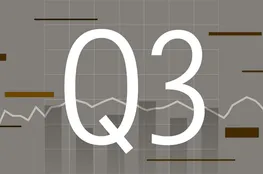As inflation continues to impact various sectors, many Americans are grappling with significant credit card debt, and certain regions of the country are faring worse than others. Newsweek consulted with experts to uncover which states are facing the most severe challenges. With economic realities varying considerably based on geographic location, a new report by Moneywise highlighted that some states are experiencing considerably higher levels of overall credit card debt. The states with the highest credit card debt are Mississippi, Georgia, Louisiana, Alabama, and Texas.
Residents in these Southern states face elevated debt balances on average and a higher likelihood of delayed payments of 30 days or more. "It's not surprising that states with residents having the highest average debt are also the ones with the most late payments," commented Alex Beene, a financial literacy instructor at the University of Tennessee at Martin. "Many southeastern states struggle more due to lower income levels in their regions. With inflation still affecting most day-to-day costs, many have resorted to credit cards and other financial debts as a means to alleviate financial strain, now finding it challenging to meet payment obligations."
Mississippi reported 7.05% of its consumers were overdue by more than 30 days on credit card payments with an average bankcard debt of $5,439, according to TransUnion's Credit Industry Snapshot. Georgia had a similar situation, with 6.32% of consumers 30 days or more behind and an average debt of $6,817. Louisiana, Alabama, and Texas followed, with between 5.49% and 6.09% of consumers past due on their credit card payments.
"The data indicates that late credit card payments are concerning across multiple states, regardless of average debt levels," a Moneywise spokesperson noted. "States like Mississippi and Georgia exhibit higher percentages of consumers missing payments, highlighting substantial economic stress among their residents." While rising interest rates and inflation affect all Americans, Southern residents often have lower incomes compared to those in Northern and Western states, likely contributing to the increase in missed payments.
"It’s expected that states with higher rates of overdue credit card payments are in the South, which includes some of the poorest states across the nation," Kevin Thompson, CEO of 9i Capital Group, explained. "This region has a higher concentration of poverty and lower median incomes, driving many to rely on debt for regular expenses and emergencies." Additionally, the South's political environment could play a role in these debt levels due to reduced focus on areas like education, affordable housing, and financial literacy, noted Thompson.
"Limited access to quality credit in many low-income communities often leads to reliance on payday lenders or high-interest options, deepening financial challenges," Thompson elaborated. Regions with limited financial education also struggle more with debt management, mentioned Michael Ryan, founder of michaelryanmoney.com. "The issue is not about intelligence but about lacking essential tools and knowledge," Ryan stressed. "This concern isn't limited to the South; it’s a nationwide call to enhance personal finance education and support."
For individuals burdened with excessive credit card debt, experts advise immediate action to address payments, noting that interest will only increase over time. "In such situations, evaluate your budget to find areas to cut back and start aggressively paying down the debt," Beene suggested. "Inflation has already taken away some of your money; don’t let interest take more."
























